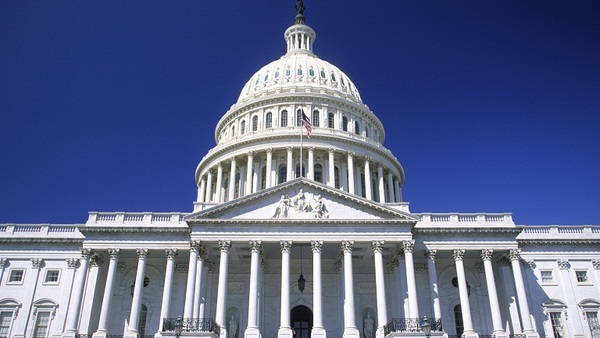
Deploying a little-used parliamentary maneuver, House Financial Services Committee Democrats on Tuesday stalled for more than three hours panel debate of the Financial CHOICE Act, Chairman Jeb Hensarling’s legislation to overhaul Dodd-Frank.
The move was the opening salvo in the committee consideration of the bill, which promised partisan fireworks.
The delay was sufficiently long that Hensarling announced Tuesday afternoon that votes on any amendments offered would be delayed until Wednesday morning.
The Democrats objected to a routine unanimous consent request to dispense with reading of Hensarling’s latest version of the bill, forcing committee staff to begin reading aloud the 591-page bill. Hensarling had proposed a “manager’s amendment” to his original bill, a routine move in committee consideration of legislation.
After committee staff read the text for more than three hours, Democrats consented to the unanimous consent request—allowing debate to resume.
“This is one of the worst bills I’ve seen in my time in Congress,” committee ranking Democrat Maxine Waters (D-Calif.) said in her opening statement earlier in the day. “This bill is rotten to the core.”
And Waters painted a gloomy future for the legislation. “This bill is dead on arrival,” she said. “It has no chance of becoming law.”
Hensarling’s bill would overhaul the regulatory regime governing financial institutions. It would, among other things, make financial regulators, including the NCUA subject to the annual appropriations process, require major financial regulations to be approved by Congress and require more extensive analysis before agencies could issue new rules.
It also would weaken the CFPB, converting it into a law enforcement agency and prohibit it from issuing controversial rules governing payday lending and mandatory arbitration agreements. It also would repeal the controversial Durbin Amendment on interchange fees.
While Hensarling’s bill is unlikely to attract Democratic support, leaders of the Senate Banking Committee have said they are trying to work on a bipartisan basis to craft their version of changes to Dodd-Frank.
In his opening statement, Hensarling said his legislation would reverse the harm that Dodd-Frank is doing to the economy and provide “desperately needed regulatory relief” to credit unions and banks. It would, he added, force “shadow regulators” to come out of the shadow.
“Dodd-Frank has been hurting every locally owned bank in my district,” said Rep. Bill Posey (R-Fla.).
Some Democrats criticized Hensarling for producing a partisan bill that will not attract any Democratic support.
“Dodd-Frank is not holy words,” said Rep. Brad Sherman (D-Calif.). Sherman asked Hensarling to break his bill into several pieces of legislation, saying there are provisions that Democrats could support.
Rep. Denny Heck (D-Wash.) agreed, saying that he is “so deeply disappointed that there was no effort to work collaboratively.”
He added, “Every single soul in this room knows that this bill isn’t going to become law.”
Senate Banking ranking Democrat Sen. Sherrod Brown (D-Ohio) blasted House Republicans for crafting such a bill.
“It’s ironic that one day after the President said he’s considering breaking up big banks, House Republicans are fighting to give megabanks and payday lenders everything they want and more,” Brown said. “Democrats have shown we’re willing to work with Republicans to tailor the rules where it makes sense, but this bill guts important Wall Street reforms that protect American families from being on the hook for another bailout.”


